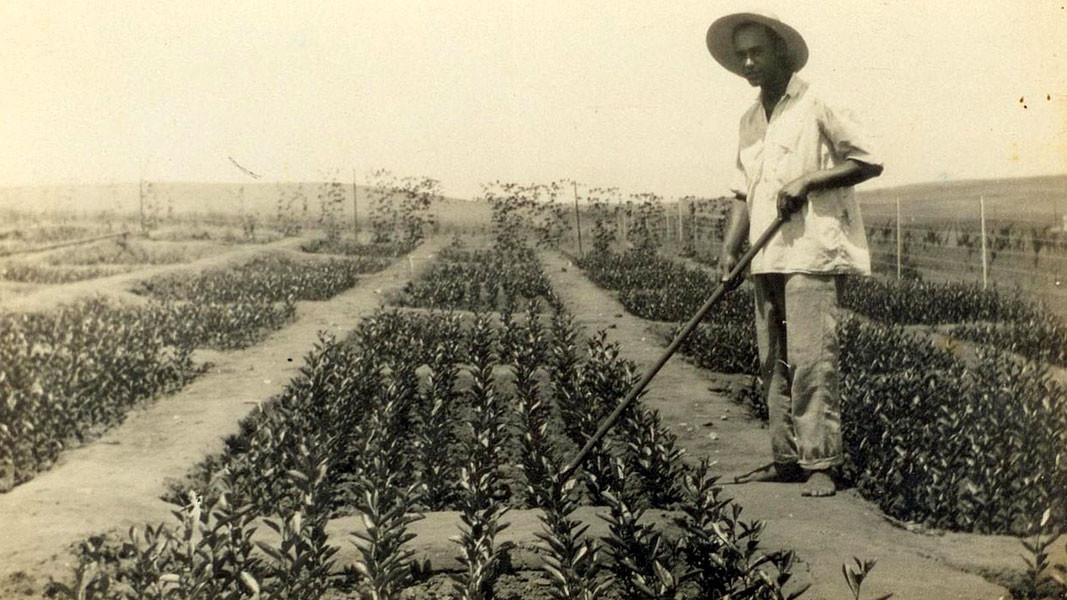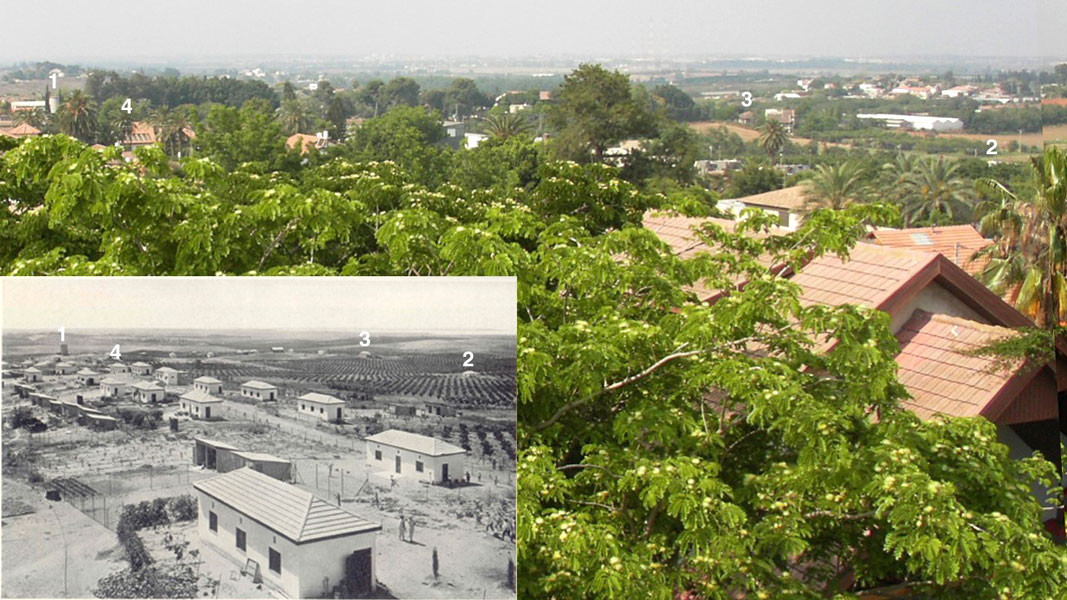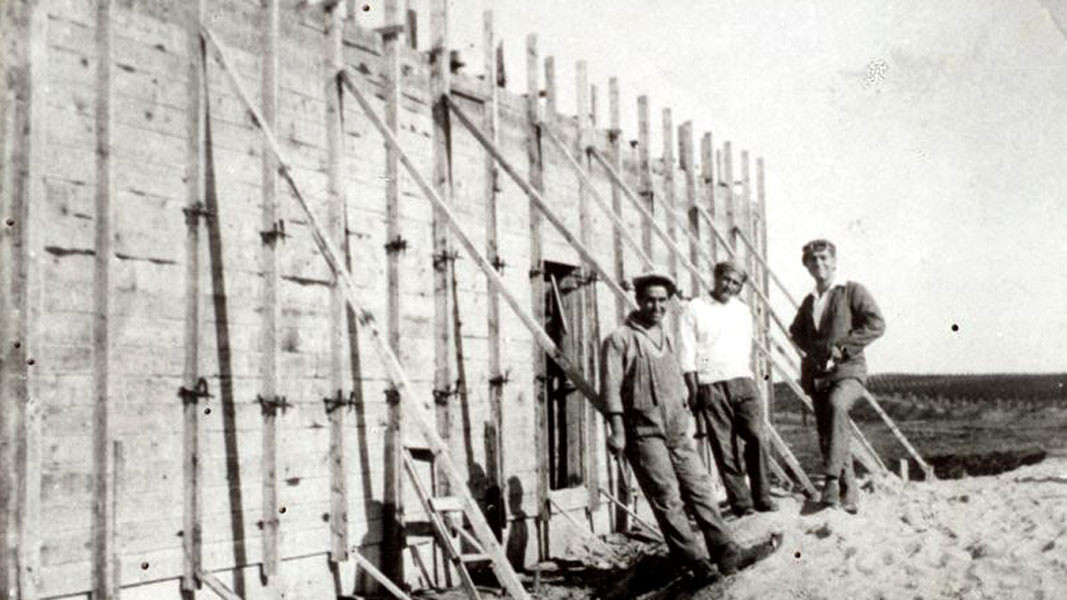Wars, an escape from political regimes, and the search for a better life over the years have taken many Bulgarians away from their homeland. This is also the case with the people in a "Bulgarian" village in Israel – Beit Canaan.
Located in the central part of the country, just twenty kilometers from the third-largest Israeli city of Rishon LeZion, this place is blessed, say the correspondents of the Bulgarian National Radio in Israel, Fenya and Iskra Dekalo. Unlike other settlements, the water there is very close to the surface, and the soil is fertile – "whatever you plant, it grows". And this is no accident. The settlement was chosen very carefully by the leaders of the Jewish community in the Bulgarian city of Plovdiv, who moved from Bulgaria and settled there in the early 20th century.
Beit Canaan is not the typical kibbutz village (an agricultural community in Israel, with common property and equality in the distribution of labour and consumption). Its first settlers were extremely independent and did not obey the semi-military rules of the kibbutz. Everyone took care of the piece of land they were given. They only cooperated when buying equipment.

The first houses in Beit Canaan resembled barracks. However, with the growth of the village, more and more solid and impressive buildings began to appear, whose architecture is very similar to the Bulgarian one. Unlike the Arabian style of the adjacent area, the houses here have sloping roofs, no matter that no snow ever falls here. However, the windows of the bedrooms are smaller than the Bulgarian windows – because of the strong sun and the unbearable heat.
Our first interlocutor from Beit Canaan is the mayor of the district:
"My name is Mony Elimelech and I was born in Israel. My mother is from Sofia and my father is from Nikopol. I am the mayor of 10 villages. Here we grow hens for eggs, oranges, avocados, mangoes and vegetables. In Beit Canaan – the oldest of the villages, we have a museum where letters and objects from Bulgaria brought by its inhabitants are stored to this day."
A curious fact that Fenya and Iskra Dekalo tell us about is that in order to be accepted into the Ottoman Empire, Jews were obliged not to engage in agriculture. Therefore, for many years after Bulgaria's liberation from Ottoman rule, calling a Jewish person a farmer was perceived as something odd. However, there are two sisters in Beit Canaan – Yael and Mihal Menda, who still cultivate their father's land to this day.

"In Bulgaria, our father graduated from а high school and our mother graduated from a French college. Their parents were well off and wanted to send them to continue to study in France – medicine for my dad and fashion for my mom. At that time, however, they were drawn to the ideas of the rebel journalist Joseph-Marco Baruch (a friend of Bulgarian writers Aleko Konstantinov and Ivan Vazov), a supporter of the return of the Jews to the lands from which they were expelled under the Roman emperor Titus (79-81). ). And not long afterwards, our parents moved to Israel. They took up farming - they planted orchards with oranges and tangerines, then started raising poultry. Today, our village has an elite horse farm and a modern poultry farm, and we continue our farm work. "
The residents of Beit Canaan also have their own cultural centre, which is quite large. Until 20 years ago, it was full of activity, Yael and Michal Menda explain. They used to have a choir in which their father was a member, and also – a dance group.

"I don't remember what the dances were like," says Mihal. “In the photos we have, the dancers are dressed in some sort of stylized Bulgarian traditional costumes, but they are barefoot. Today, people have cars and prefer to go out for some fun in the city, and once they used to have popular orchestras and theatre companies come to perform here. However, our school is big. We graduated here, and later I taught geography and botany. I have been to Bulgaria, on the route entitled Searching for one’s roots popular among Israelis. Then we stopped at my parents' village – Belashtitsa (Southern Bulgaria). We have an old photo of them - they were photographed standing under two oaks on the river bank. The trees are still there now. And we repeated the image, by taking pictures with the current farmers of Beit Canaan. "
English Rossitsa Petcova
Photos are provided by the authors.
The village of Oryahovitsa, Stara Zagora region, today celebrates its symbol - the walnut tree. There will be a Festival of the Walnut with a varied programme featuring the Kazanlahsko Nastroenie (Kazanlak Cheer) Orchestra, the soloist of..
Disputes in Croatia over sending military personnel to NATO mission in support of Ukraine NATO Acting Deputy Secretary General Boris Ruge visited Croatia to explain to local MPs about the Alliance's mission in support..
Konyovets village near Shumen is marking 160 years since the oldest stud farm in Bulgaria was set up. Celebrations are being organized on the farm on 1 November when officials from the Ministry of Agriculture and Food and of the State Fund..
For the 30th consecutive year, the Bulgarian Posts organize a contest for the most beautiful letter to Santa Claus. Letters must be sent by 18..

+359 2 9336 661
